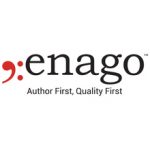- 0 (Registered)

Course Description
In the current highly competitive scientific landscape, faculty hiring committees and grant review panels need to make difficult predictions about the likelihood of a researcher’s future scientific success. Citation metrics provide a numerical approach of measuring the quality and impact of a researcher’s work. The principle of citation metrics is constructed on the assumption that if a researcher’s work was cited by another researcher, it had an impact on their research. The validity of this assumption is, however, questionable.
In this course, we will introduce discuss the importance of using citation metrics in research evaluation. We will also introduce various forms of traditional citation metrics such as journal-, author- and usage-based metrics. We will discuss their salient features as well as their pros and cons. We will provide information about the various scholarly indexes and social media outlets which generate data to compute these metrics. Furthermore, we will also focus on some key initiatives which lead to the development of alternate metrics or altmetrics. Finally, we will discuss future challenges and the impact of Open Access in the development of Next-Gen metrics.
Objectives:
- Awareness of the relevance of citation metrics
- Understanding author-based, journal-based, and usage-based metrics
- Understanding scholarly indexes and challenges of citation metrics
- Maintaining and improving metrics for researchers
- Using citation metrics to promote research
Course Content
-
Chapters 0/8
-
Chapter 1: IntroductionLecture1.1
-
Chapter 2: Data Sources and PlatformsLecture1.2
-
Chapter 3: Journal MetricsLecture1.3
-
Chapter 4: Author-Impact MetricsLecture1.4
-
Chapter 5: Usage-Based Indicators and AltmetricsLecture1.5
-
Chapter 6: Open Access and New Generation MetricsLecture1.6
-
Journal Metrics – InfographicLecture1.7
-
Understanding Research Metrics: Impact Factor, Altmetrics, and H-index – QuizLecture1.8
-
Instructor

Under Enago Academy, we offer comprehensive and up-to-date resources for researchers, publishers, editors, and students to learn and share their experience about research and publishing. By collaborating with industry experts on a common platform, we intend to make Enago Academy a forum for active discussion and knowledge sharing. Based on our experience of helping international researchers eliminate language barriers, we wish to create newer avenues by which ideas and challenges can be communicated to a global audience.






